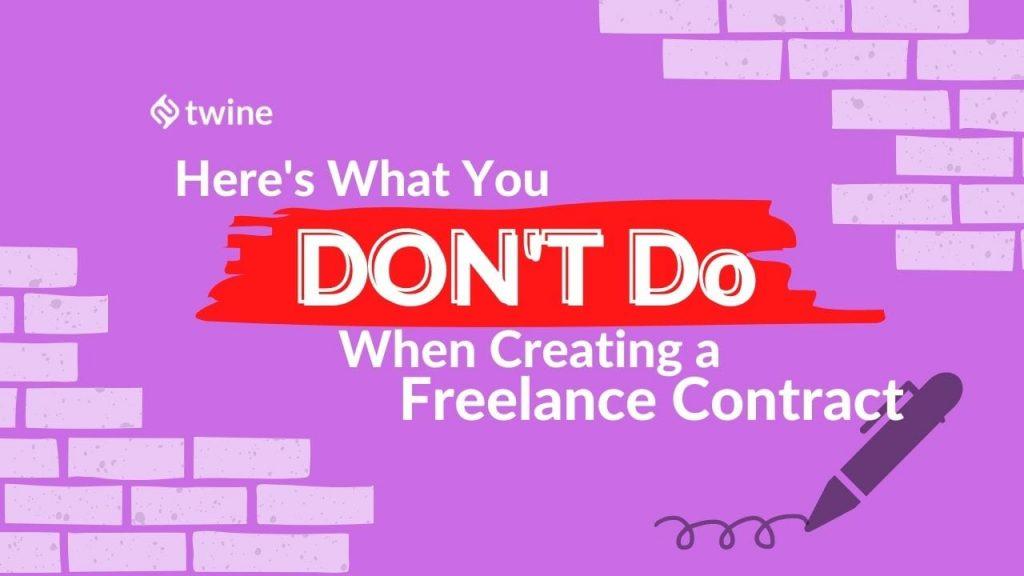
Firstly, if you’re working with a freelancer, you will need a freelance contract.
Why?
Well, contracts are super important for freelance work, as they’re a safety net for both the client and the freelancer. Not taking the time to draw up a proper freelance contract can be way more trouble than it’s worth.
So, when you’ve sat back, written up your contractual agreement, consider our top tips on what NOT to do.
1. Don’t use someone else’s contract

For clients who are starting to play around with all that legal jargon, it can be really tempting to just use someone else‘s terms to save you the hassle of drawing up unique freelance contracts.
But, this is a really bad idea. You don’t know if the terms of that contract even apply to the project in question. Plus, it’s pretty risky in terms of copyright law.
The best idea is to take the time to draw up a contract that you know for a fact is watertight for freelance business. The last thing you want is to have a clause you didn’t know existed backfire in your unsuspecting face…
2. Don’t use an unaltered template

Freelance work is hard enough – as a client, you don’t want to make it harder by being outright lazy.
Whether it’s your own template or one you’ve sourced from elsewhere, don’t just hand it over to a freelancer entirely unaltered. This is your project, after all – you should be putting effort into it!
Make sure that the terms in the freelance contract template apply to the project – and if not – amend it. Different types of projects will need different contracts to properly cover them.
3. Don’t let it go out of date

If the project changes – whether it be in scope, purpose, price, or timeframe – make sure you update the contract to reflect the alterations. This is pretty essential, as you can face a whole tidal wave of complications if you and your freelancer are working on a different freelance contract.
If the project’s extended or the contract expires, renew the contract. An out-of-date contract is a problem waiting to happen – essentially, it’s a non-complete agreement, that can you get in plenty of legal bother.
4. Don’t randomly change the contract

This shouldn’t need explaning, but you’d be surprised…
As a rule, don’t just decide to randomly change the deadline on a contract without telling your freelancer. In fact, don’t change anything on a whim, without careful consideration and talking to the other party first!
If changes aren’t agreed on, you risk at best looking unreasonable and, at worst, invalidating the whole contract altogether. On top of that, there are multiple ins and outs of contract agreement and law, so even a small change could have huge ramifications.
Check out this article for a more light-hearted contract amendment, with 100% added birthday cake.
5. Don’t just not bother

So you might be thinking now that contracts are more trouble than they’re worth, but that’s definitely not the case. For paid work, you need them.
Not having a contract at all is more of a problem than any of these other issues put together. Take the time to do it properly. Most of the time you probably won’t need it, but you’re going to be grateful when that piece of paper is the only thing stopping you from being sued into oblivion!
Struggling to construct a freelance contract? You can download our free template here.
Ready to hire? Our marketplace of over 410,000 freelancers have the skills and expertise needed to skyrocket your business to the next level. From marketers to designers, copywriters to SEO experts – browse the talented bunch here!



